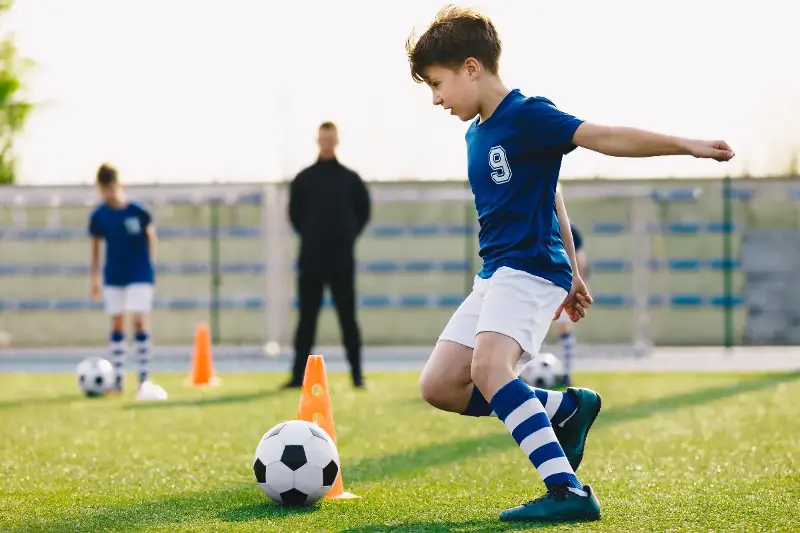When you see children chasing a football, giggling through a game of tag, or lining up for a swimming relay, you’re not just watching playtime—you’re witnessing the early construction of tomorrow’s champions. Behind every pass, jump, or dive, a complex set of physical, emotional, and social skills is being shaped, offering your child far more than trophies or medals. Could those after-school practices be the secret ingredient to lifelong achievement? The evidence is compelling.

The Science Behind Starting Early
Sport isn’t simply about fitness; it’s a powerful catalyst for child development. Research has shown that introducing sport before the age of twelve vastly increases the chance children will stay active for life. At this golden age, the brain forms neural pathways that underpin everything from balance to confidence, teamwork to resilience.
Physical activity releases endorphins—nature’s own ‘happy hormones’—which boost mood and lower stress, laying the groundwork for emotional wellbeing. Moreover, structured sports teach children how to win graciously and handle setbacks with grit, skills that echo far beyond the pitch or pool.
Entering the Arena: Hidden Lessons of Youth Sport
Enrolling your child in sport offers immediate, visible benefits like coordination and fitness. Yet it’s the less obvious gains that arguably matter more. Youth sport is a microcosm of life, where every training session or match mirrors bigger challenges ahead.
Key life skills cultivated on the field include:
- Teamwork: Learning to cooperate and trust others, even under pressure.
- Time Management: Juggling school, training, and play requires discipline—excellent practice for adulthood.
- Communication: Expressing encouragement, resolving disputes, and sharing strategies all help children find their voice.
- Goal Setting: Pursuing incremental improvement, not just victory, engrains a growth mindset.
For example, a child learning to pass the baton in a relay is also learning to rely on others—a foundation for future workplace skills. These habits, once woven into a child’s daily routine, become second nature.

Sports Shape Character—For Both Genders
It’s no surprise that athletes often emerge as leaders in their communities or careers. Sport instils integrity, humility, and respect—qualities all parents want for their children. And dispelling old stereotypes, research confirms that girls benefit as profoundly as boys from early sport participation:
- Girls in sports demonstrate higher self-esteem, develop leadership skills, and are more likely to graduate.
- Boys gain sensitivity, learn healthy competition, and discover non-violent ways to settle disputes.
In mixed-gender teams especially, mutual respect and empathy blossom, preparing both boys and girls for the diverse environments they will later encounter. Sport is perhaps the world’s most democratic classroom: everyone lines up at the same starting line.
Supporting Their Journey—Parental Roles
You don’t need to be a professional coach to play a vital part in your child’s sports journey. In fact, children of supportive parents—those who cheer effort over results and prioritise fun—are more likely to stick with sport and reap its lifelong rewards.
Simple ways you can nurture your young champion include:
- Celebrate progress, not just perfection. Did your child swim a little further today? That’s a win.
- Join in. Toss a ball together, attend their matches, or volunteer for the team. Shared experience cements family bonds.
- Embrace mistakes. They are the best teachers, on the field and off.
- Create balance. Encourage unstructured play alongside organised sport—creativity flourishes with both.
Above all, be their biggest fan—not just when they’re scoring the winning goal, but also when they miss.

From Playground to Podium—Skills That Last a Lifetime
The greatest gift sport gives isn’t short-term glory. It’s the scaffolding for a future where your child faces life’s tests with courage, creativity, and compassion. The perseverance to train for a marathon of spelling words. The flexibility to handle a sudden change in life’s ‘game rules’. The joy of working with others towards something bigger than themselves.
Through every victory, defeat, and daydream on the pitch, children are sharpening skills that universities and employers alike now actively seek: leadership, problem-solving, empathy, and resilience.
What future world-changer might you see, skipping off the football field or rolling up their gym mat? Champions don’t always wear medals—but they do almost always start young.
As you watch your child tie their laces and dash outside, consider: What lifelong adventure could you be helping them begin today? The answer, perhaps, is only one swing, pass, or leap away.
